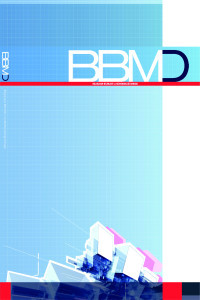The Computer Science and Engineering journal was decided to be published in Turkish in 2005 by the Computer-Information Science and Engineering Department Heads (BMBB) Board in Türkiye in order to develop the Turkish scientific language. Initially published with the support of the Turkish Informatics Foundation, the journal was later published online. The journal continues to be published by the Academic Informatics Foundation in 2024.
The journal is published in Turkish twice for one year (in June and December).
One of the main purposes of the Journal of Computer Science and Engineering is to enable Turkish publications in the field of informatics and to introduce Turkish idioms and terms in the field of informatics. Therefore, articles accepted by the referees but not used in Turkish carefully and deemed impossible to be corrected by the editor are not published in the journal. The examination and evaluation of the papers accepted by the referees from the Turkish perspective is carried out by the Turkish Language Editor.
The following types of articles are accepted to the journal:
• Research article: An article presenting an original research with its results,
• Review article: An article scanning, summarizing, evaluating and interpreting the findings of a sufficient number of scientific articles in the field of computer science and engineering on a certain subject,
• Industrial article: An article explaining the research conducted and new products or technologies developed in the industry in the field of computer science and engineering,
• Thesis study: An article containing an extended summary of an original thesis study conducted at the graduate level,
• Book review: An introduction and evaluation of a new book published in the field of computer science and engineering.
Articles that can be submitted to the journal can be in the following areas. New research topics may be added over time.
*Algorithms Natural language processing Health information systems
*Assigned systems Theory of computation Encryption and personality
*Computer networks Human machine interaction Signal processing
*Information and computer security Operating system Question and answer systems
*Information retrieval Machine learning Social networks
*Computer vision Internet of things Data science
*Computer architecture Games Data mining
*Cloud computing Pattern recognition Artificial intelligence
*Fuzzy logic Programming languages Software engineering
*Big data and its analysis Robots and their applications High performance computing


